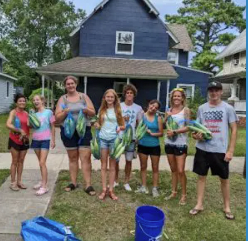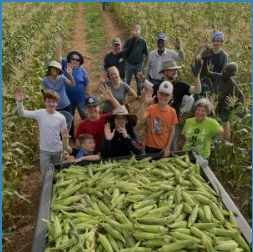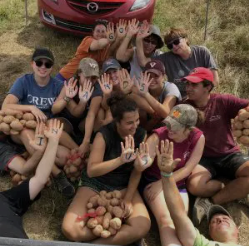Our Work
Programs
Insert introduction copy about our 3 (or 4) programs here. Insert introduction copy about our 3 (or 4) programs here. Insert introduction copy about our 3 (or 4) programs here. Insert introduction copy about our 3 (or 4) programs here. Insert introduction copy about our 3 (or 4) programs here. Insert introduction copy about our 3 (or 4) programs here. Insert introduction copy about our 3 (or 4) programs here. Insert introduction copy about our 3 (or 4) programs here.
Harvest of Hope The Gleaning Network Potato & Produce Project Seed Project

Harvest of Hope
These 4 and 3-night events are designed for youth in Middle and High School. Groups of all sizes are welcome. Whether your group fits into one car or you need a bus, we can help get your entire group active in local missions to rescue and share good food.
We offer age-appropriate mission and education opportunities so that individuals can learn about the twin issues of food insecurity and food waste and immediately do something about them. Get more details here

The Gleaning Network
SoSA’s Gleaning Network coordinates volunteers, growers, and distribution agencies to rescue fresh food from fields before it is lost as waste. While the food is still good to eat, it is donated at no cost to food banks, food pantries, and other hunger-relief agencies helping those in the most need in your community.

Potato & Produce Project
SoSA salvages tractor-trailer loads of potatoes and other produce that are rejected by commercial markets due to slight imperfections in size, shape, sugar content, or surface blemishes.
Usually, these rejected loads end up at local landfills. Through the Potato and Produce Project, SoSA is able to redirect these 40,000-45,000-pound loads of fresh, nutritious produce to food banks, soup kitchens, food pantries, low income housing areas, local churches, and other hunger agencies for distribution to those in the greatest need.



Seed Project
Enough food is produced in the United States to feed every hungry individual. But SoSA also knows food is not always grown where it is needed most.
The Seed Project focuses specifically on food desert areas, community gardens, inner city gardens, edible churchyards, and church gardens, and Title I/Community Eligibility school garden projects. Partners and recipients include Appalachian farmers and other partners in food deserts.
